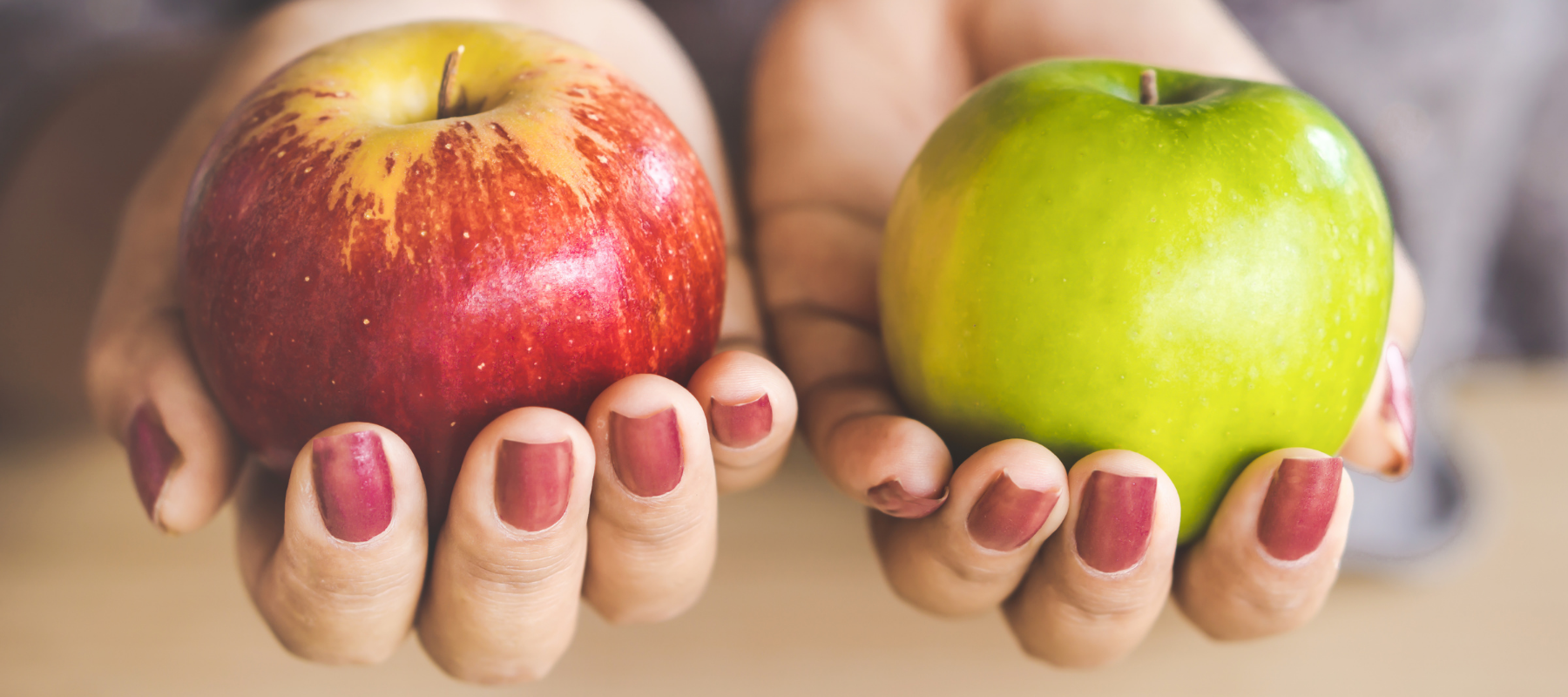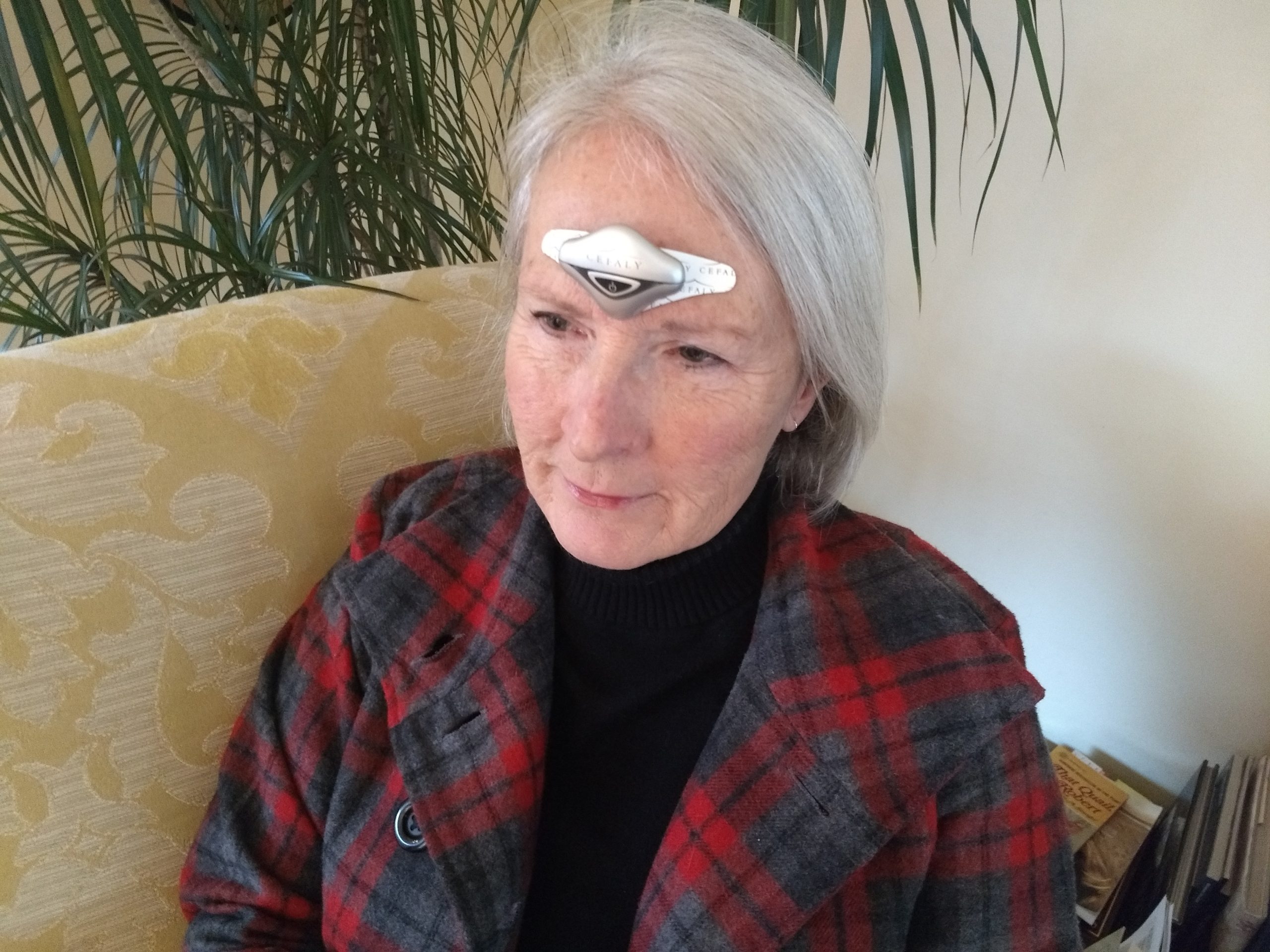The holidays are an exciting time of year. From reuniting with family and sharing gifts to eating wonderful meals and treats, the festivities are a perfect way to end the year.
However, the holiday season can also be stressful for many people. The many events and financial pressures can make people feel overwhelmed, anxious or depressed. Some experience the holiday blues, which are persistent feelings of sadness that occur during the holiday months. The holidays can also cause more stress for those with migraine. Migraines can disrupt your holiday plans or cause you to miss out entirely.
If you’re wondering how to deal with holiday migraines, you’re not alone. This article covers our top holiday stress tips and offers advice on managing a Thanksgiving or Christmas migraine.
What are the holiday blues?
The holiday blues are feelings of sadness that persist throughout the holidays, typically through November and December. The sad feelings can vary in severity and duration. They might occur periodically, then lift as people experience certain moments during the holidays. Or, the blues could be fairly mild sometimes or overwhelming at other times. Holiday blues typically end after the new year begins.
Common symptoms of holiday blues include:
- Depressed or irritable mood
- Difficulty concentrating
- Excessive tiredness
- Feelings of anxiety
- Appetite changes
Many aspects of your life could trigger the holiday blues, such as:
- Extra stress: You might experience additional stress around the holiday season that makes you feel holiday anxiety instead of holiday excitement. Whether you have to plan parties or host extra visitors, these holiday events can lead to feelings of inadequacy or sadness. Staying constantly busy can also cause feelings of exhaustion. If you live with migraine, you might experience additional stress, leading to holiday blues.
- Less sunlight: The winter holidays are typically preceded by shifting off daylight saving time, so it gets darker earlier. There are also fewer daylight hours in winter. Less exposure to sunlight can deplete our vitamin D stores, and vitamin D deficiency can have negative mental and physical impacts.
- Lack of family: You might be unable to meet your family or friends over the holidays, causing feelings of dejectedness.
The holiday blues might affect people with migraines more. Migraine and mental health are connected in many ways, with migraines causing feelings of anxiety, depression or stress. People with migraines might worry more about the holidays, resulting in the holiday blues.
Holiday blues vs. seasonal affective disorder

Seasonal affective disorder (SAD) is another condition similar to the holiday blues. SAD is a depression that happens because the seasons change. Symptoms of SAD usually begin in the fall and continue through the winter, but they sometimes start in summer.
SAD can drain your energy and make you feel down or moody. Other symptoms of the condition are:
- Losing interest in your favorite activities
- Having trouble with concentration
- Feeling sad for most of the day
- Sleeping too much or too little
- Feeling hopeless
While SAD and holiday blues are alike, they have a few significant differences, such as:
- Duration: The holiday blues generally happen around November or December, during the end-of-year holidays, and they typically lift after the new year begins. SAD can persist throughout several seasons, sometimes lasting for four or five months.
- Severity of symptoms: SAD symptoms are more severe than the holiday blues. They can keep you from participating in regular activities or make you feel entirely hopeless about your life. The holiday blues are usually less intense.
Both conditions can be particularly hard for those with migraines. Migraines can initiate feelings of depression, anxiety and stress. You might worry about getting a migraine during a busy holiday schedule, adding additional stress to your plans. By finding ways to manage their symptoms, people with migraine can enjoy the holidays to the fullest.
Learn How CEFALY Prevents & Relieves Migraine Pain
Managing migraine during the holidays
If you experience SAD or the holiday blues in addition to migraines, the holidays can become a stressful time of year. A holiday migraine can cause you to miss family time or other important events. And SAD and the holiday blues can keep you from enjoying the festivities fully.
Taking care of yourself during the holiday season is the best way to prevent migraine attacks. By showing yourself compassion and making proper preparations, you can reduce some of the stress surrounding the holidays. Whether you want to avoid a headache after Thanksgiving dinner or a severe migraine, stress management techniques can help.
Here are eight tips for migraine and holiday stress management.
1. Be prepared

Preparing for a potential migraine can help ease some of your stress during the holidays. If you know you have protections in place, you might feel less apprehensive about getting a migraine. And if one does occur, you can quickly find relief.
Here are some steps you can take to prepare during the holiday season:
- Stock up on medication: If you use a doctor-prescribed medication for your migraines, stock up sufficiently before the holidays begin. Packed schedules can make it challenging to find time for refills, so it’s best to get them before things get busy. That way, you can take your medicine right when a migraine begins.
- Keep CEFALY nearby: CEFALY is a leading FDA-approved migraine treatment that can reduce migraine frequency and relieve pain during an attack. The device targets your trigeminal nerve, which is responsible for the pain you experience during a migraine. If you use CEFALY for treatment, keep it in an easily accessible area during the holidays. You can also stock up on electrodes, which are necessary to power the device. And if you plan on traveling for the holidays, remember your CEFALY travel case.
- Explain your condition to friends and family: Another way to prep for holiday migraines is by explaining them to your family. You can speak to friends and relatives about the possibility of you getting a migraine and keep them aware of your condition. In turn, they can better understand if you need to withdraw from plans.
If you have any other emergency migraine plans, be sure to make the necessary preparations for those, too.
2. Manage your stress
The holidays can be a stressful time. Whether you’re hosting family, navigating massive shopping crowds or waiting in endless traffic, some aspects of the festivities can become more stressful than joyful. And to make matters worse, stress is one of the biggest migraine triggers.
To maintain holiday enjoyment and reduce migraines, you’ll want to practice stress management techniques like these:
- Yoga: Yoga is an excellent way to fit in exercise and relieve stress simultaneously. The movements calm and strengthen your body, allowing you to focus on your breath. It’s an excellent method for clearing your mind and learning better self-care. You could try to fit in a few minutes of yoga before bed, first thing in the morning or any other free time you have during the holidays.
- Deep breathing: Deep breathing encourages your body to relax and alleviates stressful feelings. It quiets your sympathetic nervous system, allowing relaxing feelings to fill your body instead. Try taking a few quiet moments to focus on your breathing. You could place one hand on your stomach and the other on your chest, feeling them expand as you take in deep breaths. Practicing this strategy for a few moments each day can help lower stressful feelings.
- Meditation: Meditation has been a popular stress management technique for centuries. It’s also another great example of how to reduce holiday stress. It can lower anxiety and allows you to calm your racing thoughts. To meditate, find a quiet place and close your eyes. Allow your thoughts to pass through your mind without judging them. Many people also focus on a particular phrase, word or feeling during meditation, which can help ground you in the practice.
3. Know your triggers
Another important aspect of holiday headache and migraine management is knowing your triggers. For many people with migraine, a specific smell, taste or visual experience can cause a migraine to start. These triggers can be uncontrollable, causing a migraine to occur in just minutes.
If you can recognize your typical triggers, it becomes easier to avoid them. For instance, if you know that dark chocolate can sometimes cause a migraine, you can actively avoid dark chocolate to prevent it from occurring. Common migraine triggers include:
- Alcohol
- Caffeine
- Bright lights
- Strong smells, like intense perfumes or gasoline
- Changes in weather
- Disrupted sleep schedule
If you don’t recognize any regular triggers, you might be unsure of how to start finding them. Tools like CEFALY’s CeCe Migraine Management app can help you identify triggers and recognize other trends in your migraine attacks. This free and easy-to-use application helps you manage migraines and offers individualized advice for your needs.
4. Create a budget for holiday spending
Next, try setting a budget for your holiday expenses. One of the most significant stressors of the holidays is increased spending. From buying presents for family and friends to purchasing every ingredient for your big holiday meal, you tend to spend more during the end-of-year festivities.
If you notice that holiday spending is a big factor in your stress levels, consider making a budget ahead of time. You can base it on how much money you expect to earn in the final months of the year. Try making a list of every person you plan to buy a gift for. You could also list the food or supplies you need for other events, such as parties or large dinners. Then, you can divide these lists based on your available money levels.
Planning for holiday expenses can help you feel more in control while spending. You can stay on track with money-based goals and prevent additional stress about overspending.
5. Get regular sleep

Sufficient sleep is also critical for stress management. Without enough sleep, you might feel even more stressed and begin an unhealthy sleep schedule. Irregular sleep patterns can also trigger migraines, making them even more harmful for those with chronic migraines.
Techniques like exercise and turning off your devices at least 30 minutes before bed can help you fall asleep more naturally at night.
6. Exercise
Regular exercise can help you manage stress-related thoughts and feelings. It reduces stress hormones and stimulates endorphins instead, allowing your brain to relax from typical stressors. Exercise can also help with migraines and even minimize pain during an attack.
Many people engage in an exercise like:
- Walking
- Running
- Swimming
- Playing sports, like basketball or soccer
- Lifting weights
Sometimes, keeping a consistent exercise routine during the holidays can be challenging. But even if you don’t visit the gym every day, you can find smaller ways to fit in movement. For instance, you could try activities like:
- Taking the stairs instead of an elevator
- Taking a small walk on your lunch break
- Parking farther away from the store or your house
No matter how you fit in exercise, it can still bring many benefits to your body and stress levels. Remember to find time for movement during the holiday season.
7. Set reasonable expectations
Another important reminder for managing holiday stress is to set reasonable expectations for yourself. The holiday season might put you face-to-face with some of your migraine triggers, such as an irregular routine, additional stress or changes in diet and sleep patterns. Unfortunately, some exposures are out of your control, and that’s all right. Remember to be kind to yourself if a migraine occurs and to use self-compassion throughout the holiday months.
In addition, try not to overextend yourself or commit to more than you can handle. A completely packed schedule would be stressful for anyone, and it’s fine to decline a few invitations. You can build a holiday schedule that allows you to relax rather than one that becomes too stressful.
8. Lean on others
Lastly, one of the best ways to manage migraines and stress is by reaching out to friends and family. If you notice increased feelings of stress or sadness around the holidays, connect with your loved ones rather than isolating yourself. You can tell a trusted friend or family member about your stress, and they can help you work through those feelings. They might have extra tips for your situation or be willing to help with some holiday tasks.
Having a strong support network can also help you manage migraines. You can explain your common migraine triggers and they can help you avoid them throughout the holiday months and beyond. In addition, they can support you through feelings of frustration and pain. Remember that reaching out to others is always better than trying to handle these negative feelings on your own.
9. Steer clear of foods that trigger migraine.
Holiday food is notorious for containing common migraine triggers, such as chocolate, cheese, nuts, processed meats, dried fruits and citrus. Even then, it can be hard to resist a big, bountiful holiday spread. Try eating a light meal before any gathering, and if you’re unsure about whether a dish contains a trigger food, just skip it.
10. Have a plan for enjoying — or avoiding — alcohol.
Red wine, champagne and dark liquors are among the worst culprits for triggering migraine. Stick to lighter drinks, or avoid alcohol altogether. We’re intrigued by these sophisticated mocktails for migraine shared by the Dizzy Cook: the “Fiona on Holiday” Cranberry Ginger Mint Mocktail and a fragrant Apple Cider Mocktail. Be sure to stay hydrated, too.
11. Be strict about bedtime.
It’s tempting to stay up late to wrap gifts, address cards, bake… But irregular sleep patterns, or not getting enough sleep, can be a serious problem for people with migraine. Do your best to stick to regular times for going to bed and waking. Get more tips for getting a good night’s sleep when you have migraine.
12. Embrace JOMO.
You’ve heard people talk about FOMO (the fear of missing out). That’s the impulse that drives us to make more commitments than we can really handle, because we don’t want to be left out of something fun or exciting. Let JOMO — the joy of missing out — be the north star for your holiday season. Instead of rushing around to holiday events and gatherings, focus on how great it feels to be cozy at home, with loved ones or pets, just savoring the season.
13. Let go of guilt.
Of course, there’s no JOMO when you’re forced to miss holiday fun because of a migraine attack. Not only are you in pain, but you feel terrible for disappointing your friends and family. Forgive yourself. It’s not your fault. Believe your loved ones when they tell you it’s OK.
15. Give yourself the gift of migraine relief.
If you’ve had limited success with migraine medications, or if the side effects are just too much, then it’s time to try something new. Now available without a prescription in the U.S., CEFALY DUAL is a non-invasive medical device that’s clinically proven to prevent migraine attacks and reduce migraine pain. Worn on the forehead, it sends tiny electrical impulses through a self-adhesive electrode to stimulate and desensitize the trigeminal nerve, reducing the frequency and intensity of migraine attacks.
Try CEFALY risk-free for 90 days
Get started with CEFALY today
If you’re wondering how to avoid migraine, choose CEFALY today. CEFALY is a leading and drug-free solution for migraine treatment. Our simple-to-use devices and accessories can improve your quality of life and reduce migraine pain. With our CEFALY Connected device, you can reduce migraine frequency and alleviate pain during attacks. You can also use our free CeCe app to track your migraine attacks and identify common triggers.
Try our devices for 90 days with a money-back guarantee. To get started with CEFALY, browse our products today.















